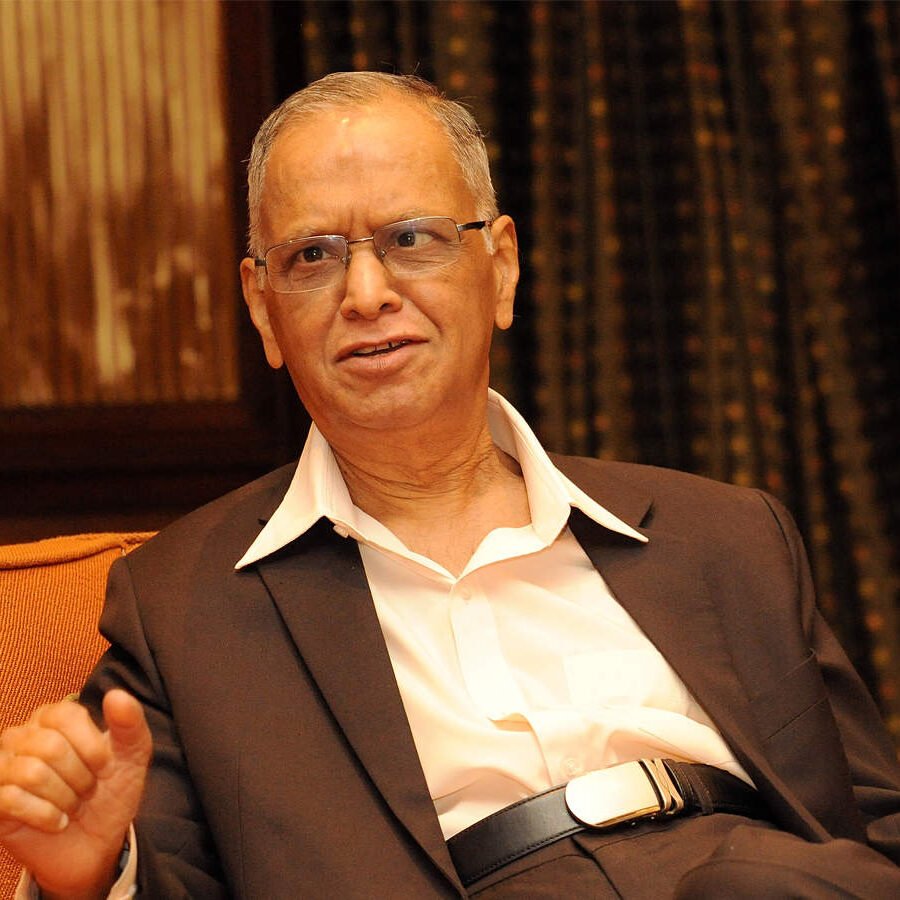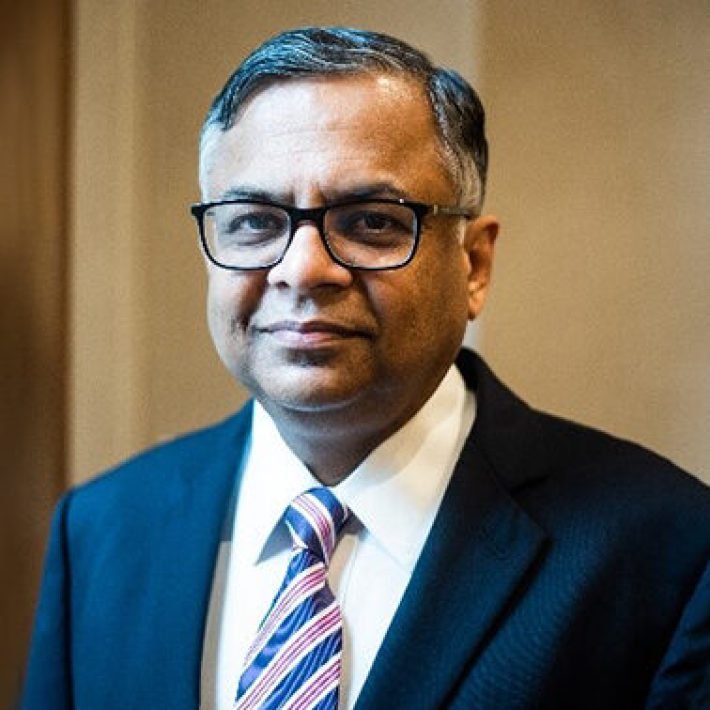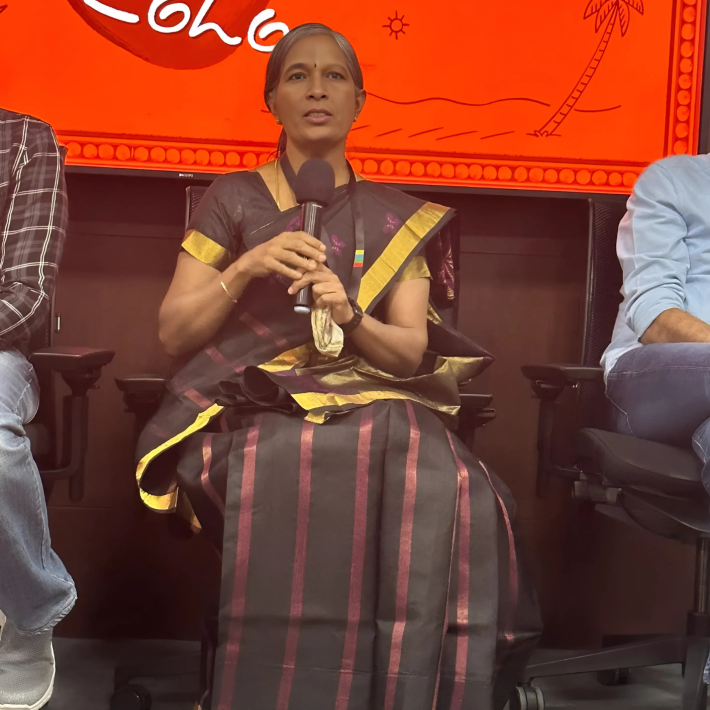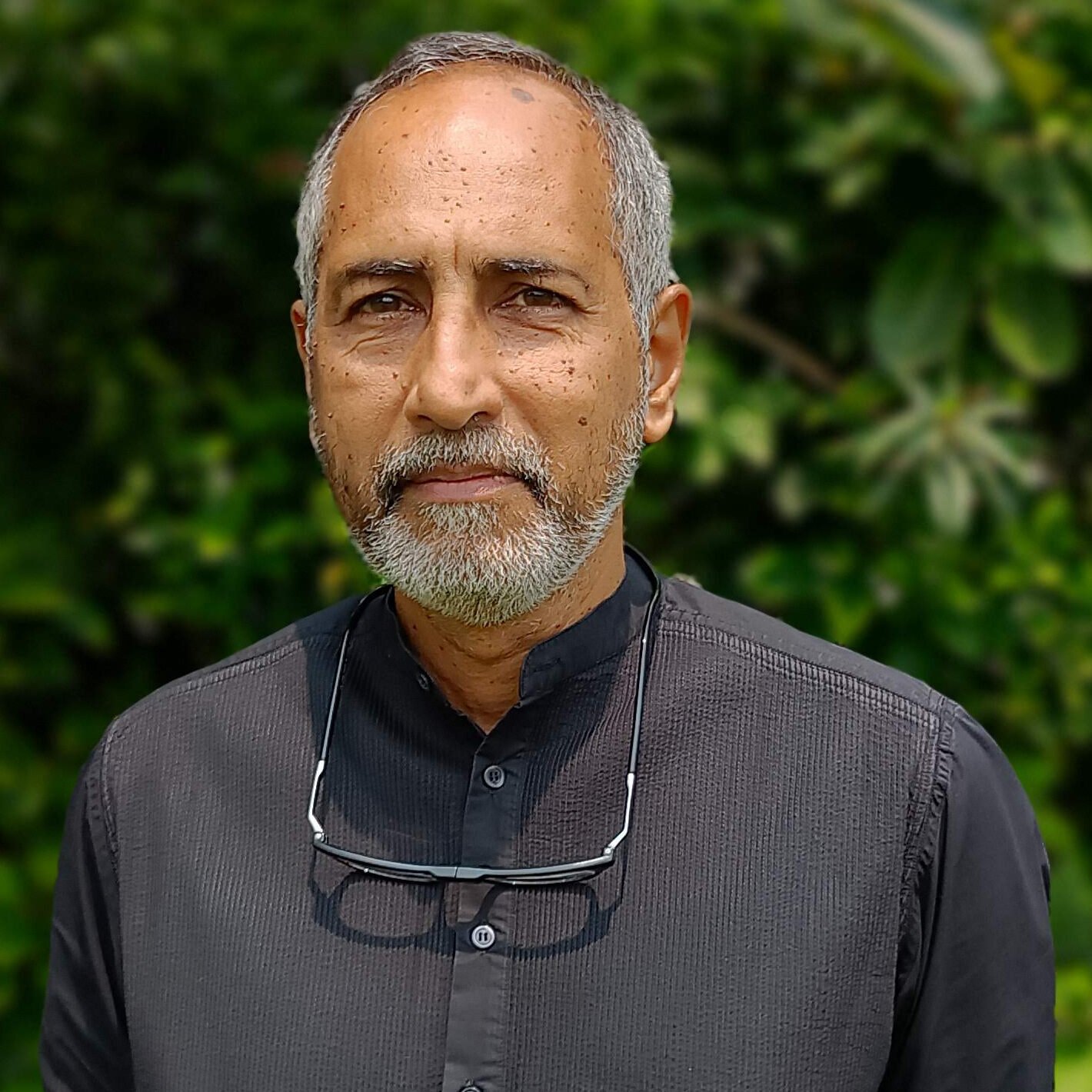‘Father of the IT Sector’ – N R Narayana Murthy is not resting on his splendid past laurels. He is now prepping for the next stage of India’s growth as a high-quality manufacturing hub. Here’s a deep dive into his mind and methods…
By Swaroop Das
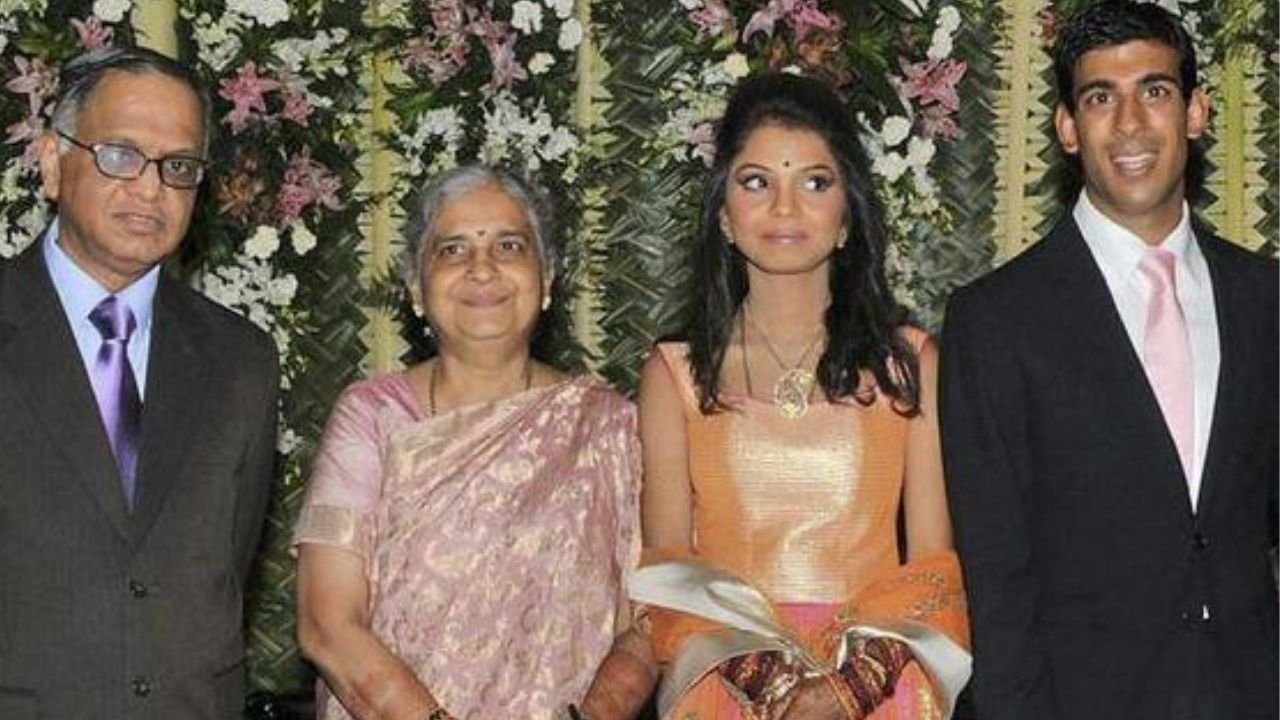
N R Narayana Murthy, the legendary co-founder and retired chairman of Indian tech giant Infosys — in which he continues to hold a minority stake — shows no sign of slowing down. News comes in that the money manager of the 76-year-old billionaire will hire professionals and double its $1 billion in investments in the next five years, betting India will emerge as a high-quality manufacturing hub. Murthy’s Catamaran Ventures LLP, which began operations in 2009, will raise its assets under management to as much as $2 billion. It is exploring strategic partnerships in three new areas: deep tech, precision engineering and manufacturing, and renewables, marking a shift from the firm’s prior focus on services. Can’t say we’re surprised… Narayana Murthy has always been ahead of the game!
Interestingly, Sunak revealed that it was his father-in-law who encouraged him to make a career in UK politics and aim for the top job of PM as he told him he could have a greater impact on the world through politics rather than business. Clearly, when Narayana Murthy gives advice, it’s best to heed it!
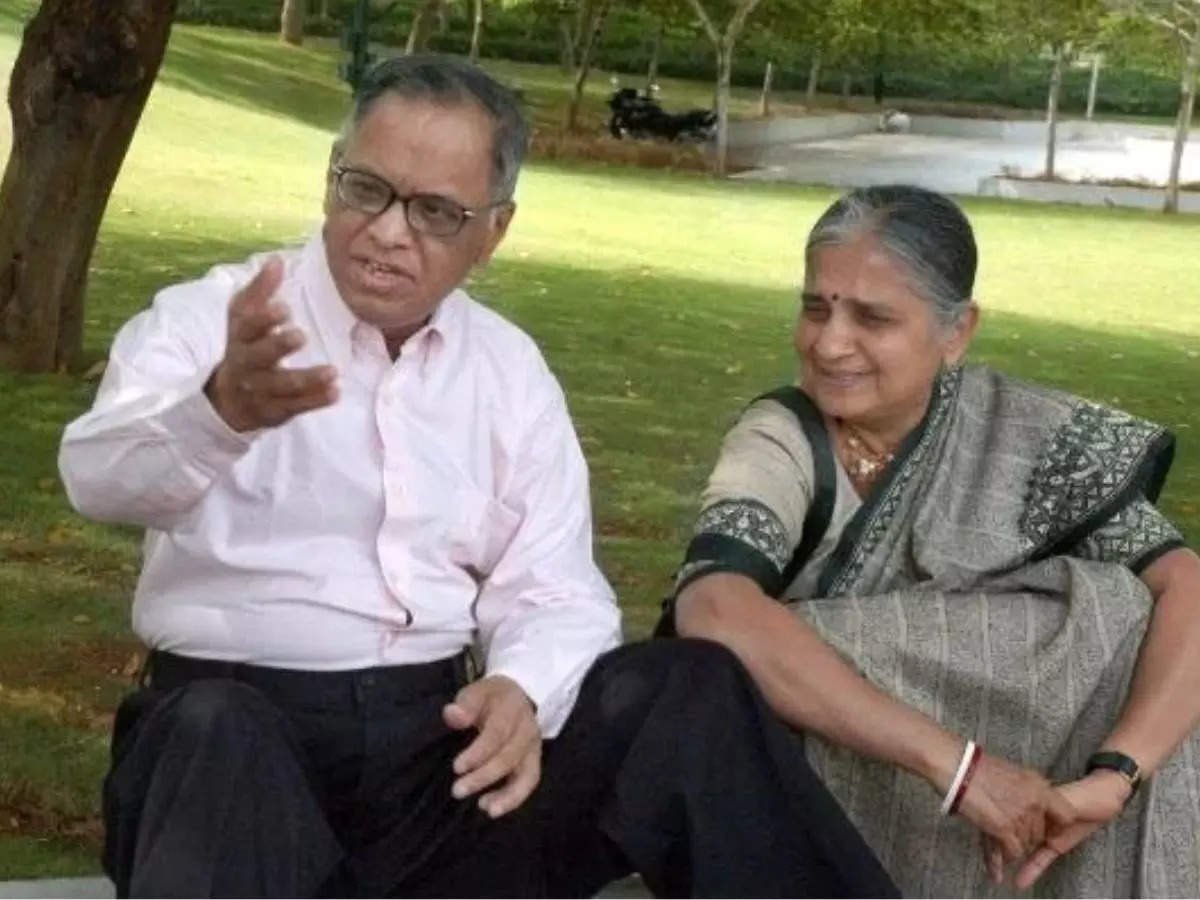
Building An Empire

By pioneering a novel strategy of outsourcing technology services, Murthy helped build Infosys into one of India’s national champions. Don’t forget, it was the first Indian company to be listed on an American stock exchange. Born on August 20, 1946 in Kolar, Karnataka, its famous cofounder earned a Bachelor’s degree in electrical engineering from the University of Mysore in 1967, followed by a Master’s degree in technology from the Indian Institute of Technology, Kanpur, in 1969. Working in Paris during the 1970s, he helped design an operating system for handling air cargo at Charles de Gaulle Airport. Returning to India, he accepted a position with a computer systems company in Pune. Deciding to launch his own company, he cofounded Infosys with six fellow computer professionals in 1981, on a mere $250 borrowed from his wife. However, it wasn’t until the early 1990s and the government’s move towards liberalisation and deregulation that the country’s tech and computer sectors saw dramatic growth. Aggressively expanding Infosys’s services and client base, Murthy negotiated deals with several overseas businesses to provide them with consulting, systems integration, software development, and product engineering services. The results were nothing short of astounding. By 1999, Infosys had joined NASDAQ, becoming the first Indian company to be listed on an American stock exchange. The cynosure of all eyes, Murthy was included in ‘Asiaweek’s’ Power 50 annual list of the most powerful people in the region in 2000. He was one of ‘BusinessWeek’s’ ‘Stars of Asia’ for three consecutive years, and was also named ‘Fortune’ magazine’s 2003 Asian Businessman of the Year. Described as the “father of the Indian IT sector” by ‘Time’ magazine and CNBC for his contribution to outsourcing in India, he has also been honoured with the Padma Shri, Padma Vibhushan and the Legion of Honour.

Murthy has led his company from strength to strength. In April 2004, Infosys posted $1.06 billion in total annual revenues — a whopping 33% increase in revenues over the previous fiscal year. This growth was doubly remarkable as it came in the middle of a global downturn in the information technology sector. In 2006, when Murthy retired, Infosys had grown into a behemoth with around 70,000 employees and an annual revenue of $3 billion.

Of course, that was not the end of it… While he stepped down as chairman in 2011 after 30 years with the company, he returned in 2013 to hand over management to a professional CEO in 2014. Controversy erupted in 2017 when he raised concerns over alleged corporate governance lapses at Infosys. Though this was denied by the company, it had repercussions such as the resignation of the CEO and a board shakeup that facilitated the return of retired co-founder Nandan Nilekani as Non-Executive Chairman.
Passionate about entrepreneurship, Murthy feels it is the only way countries like India can solve the problem of poverty.
Understanding The Legend
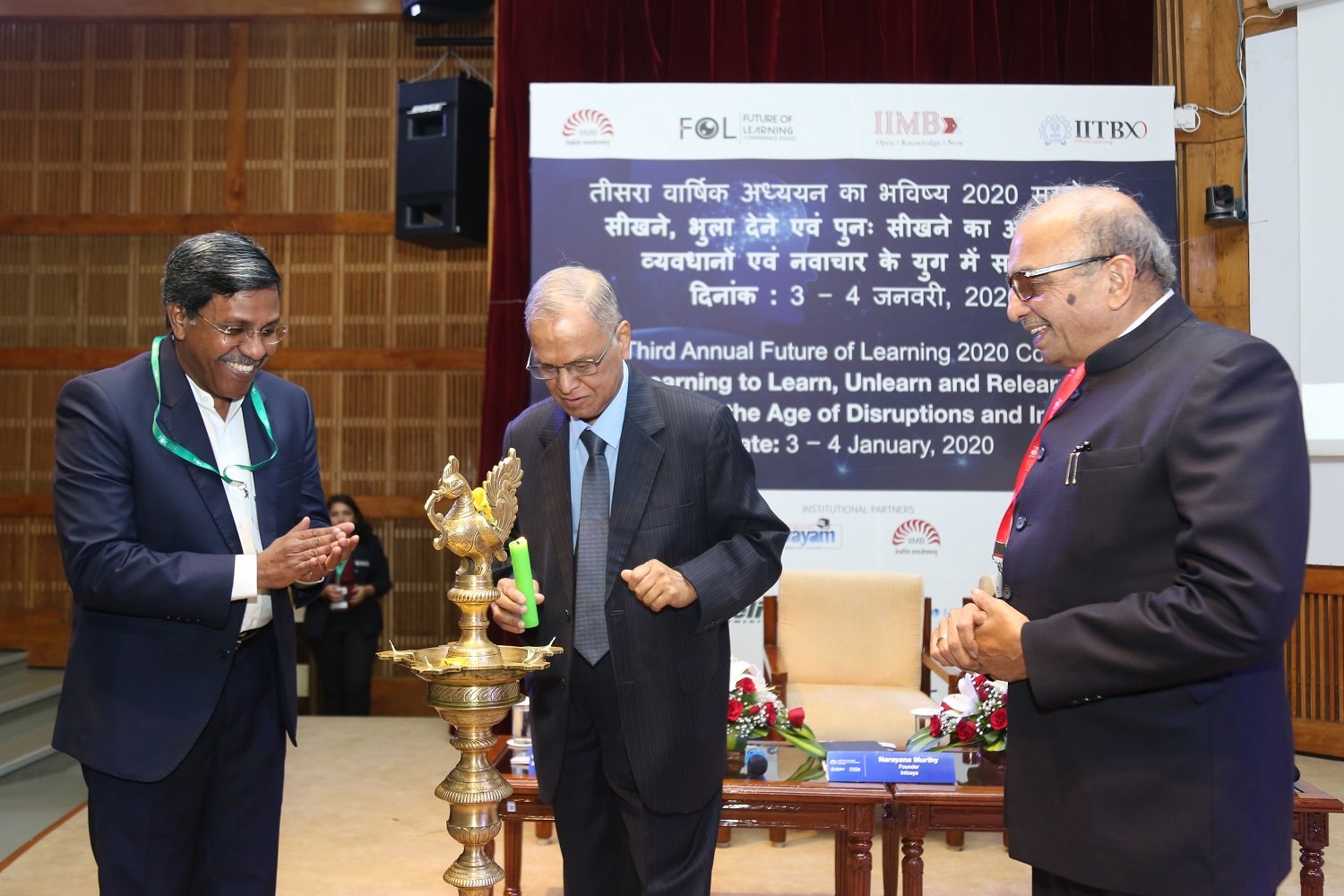
Do you know the one thing Narayana Murthy does without fail every night when he returns home? Clean the toilet. He explains, “We have a caste system in India where the socalled lowest class… is a set of people who clean the toilets. My father believed that the caste system is a wrong one and therefore he made all of us clean our toilets… and that habit has continued, and I want my children to do that. And the best way to make them do it, is if you did it yourself.”
Passionate about entrepreneurship, Murthy feels it is the only way countries like India can solve the problem of poverty. He believes that the impact of his company and of entrepreneurship, in general, extends not just to the employees, but to their families and beyond. “The children of those families have new opportunities… new hopes, new confidence. And that’s what makes me sleep well.”
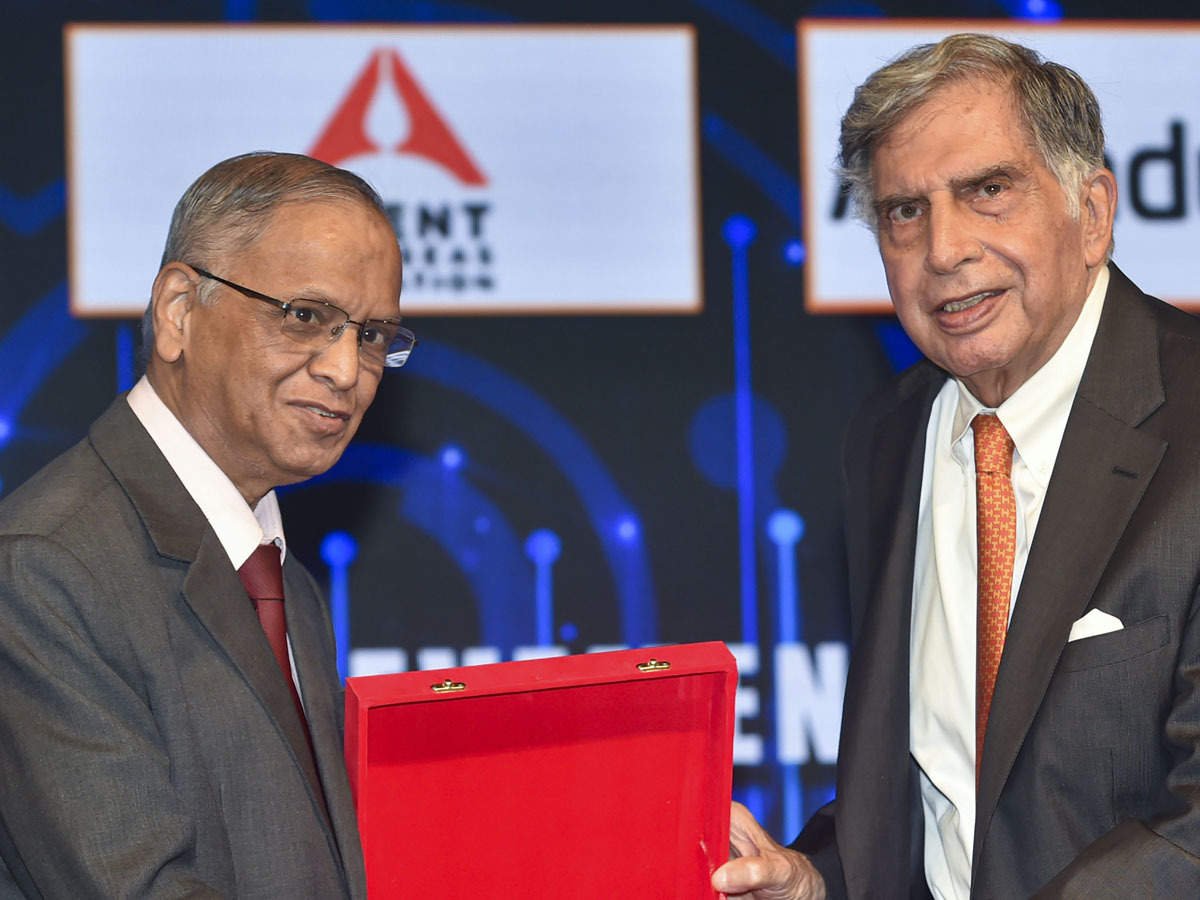
There is no room for complacency, in Murthy’s book. Admitting that he would like the firm to make progress eternally, he points out, “The only way that we can make it permanent is through innovation, is through hard work, is through smartness, is through commitment.”
Murthy’s Mantras
A glimpse into the lessons he learnt as an entrepreneur…
• The importance of articulating values and practising them. “Values form the backbone of an entrepreneur’s determination. The first and the most important tenet of our value system was putting the interest of the company ahead of our personal interest in every decision the founding team took,” he says.

• Failures are part of an entrepreneurial journey, and can be beneficial if you quickly analysed the reasons why you failed, learnt the lesson and did not commit the same mistake again.
• An entrepreneur has to constantly look for signs that their venture is likely to encounter a structural problem and that the company is likely to fall into an irretrievable situation. “This is the time for the entrepreneur to tone down his passion for the idea, keep emotions aside and quickly bring the venture to a decent closure.”
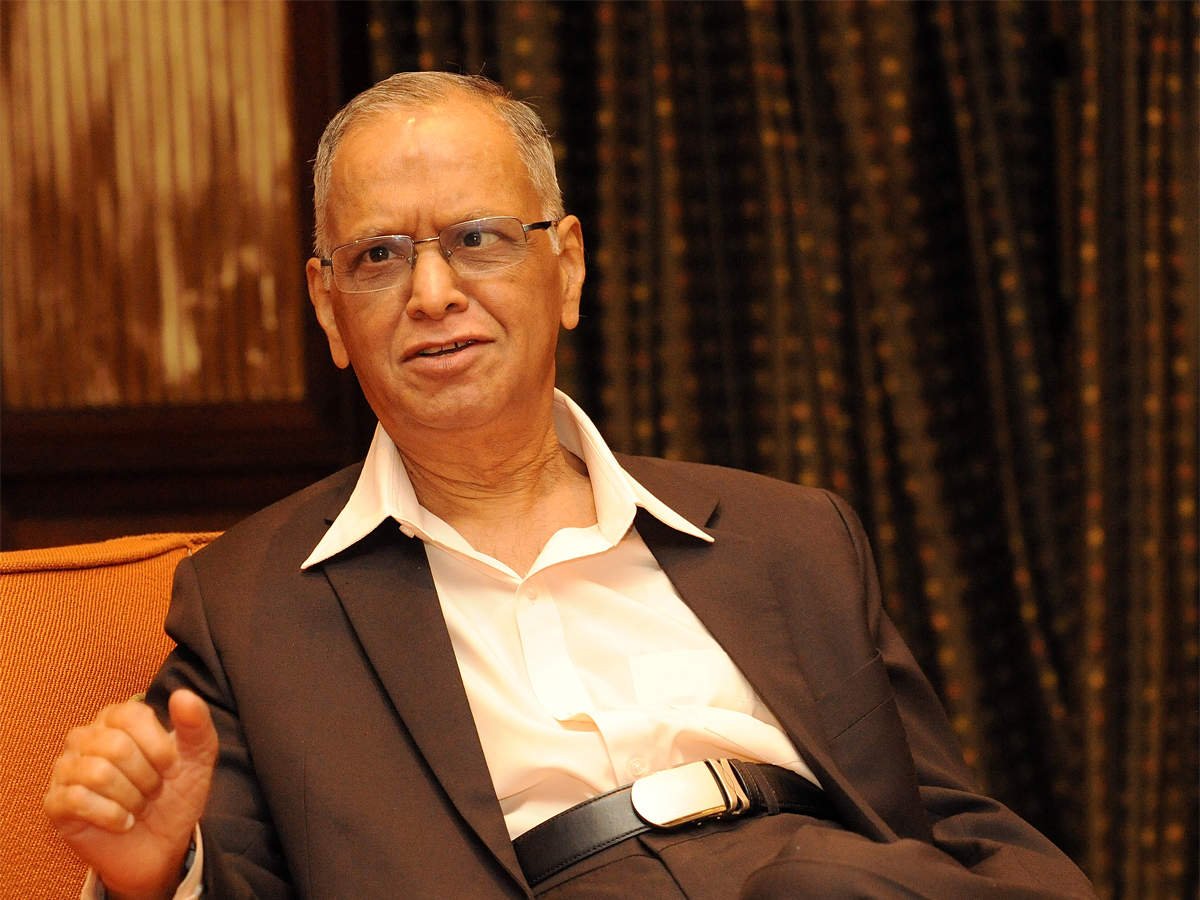
• Recognising the role that luck plays in an entrepreneurial journey. “There were so many friends and classmates who were much smarter than I was. Their teams had better credentials than we had. They had better ideas than we had. But God chose us to smile on. There were many critical situations and deals when it could have gone either way. Somehow, God helped us take the right decision in those situations,” he maintains.
• Market competition is the best management school. “Market competition taught us how to attract and retain good customers and employees and how to enhance the trust of our investors. In every area of our operation, we benchmarked ourselves with the best practices in the world, and created some ‘next’ practices,” he said.
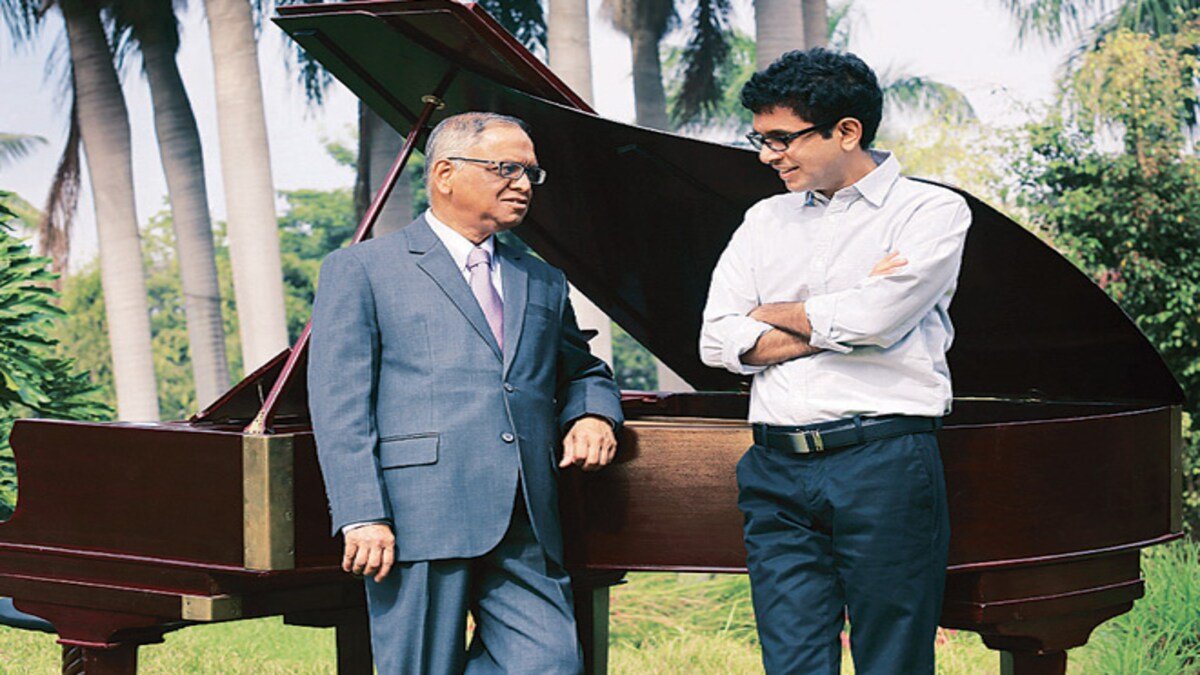
• Leadership by example, walking the talk, and practising the precept is what makes a leader trustworthy in the eyes of his team members. During the initial years of Infosys, when the company needed to be austere with overheads, he travelled economy class even on international flights, till reaching a revenue of $1 billion. Even today, he travels by economy on domestic flights. Also, he would be in the office at 6.20 am every morning till he retired in 2011, sending a powerful message to youngsters about reaching the office on time.
• There should be one and only one leader in any company at any time. “No company can be run by committees. We learnt that a leader has to lead by example in values; must work the hardest; must make the biggest sacrifices; must welcome ideas and opinions from competent and expert colleagues before taking any decision; must consider those ideas in his decision, and the buck must stop at his table for every major decision,” he maintained.
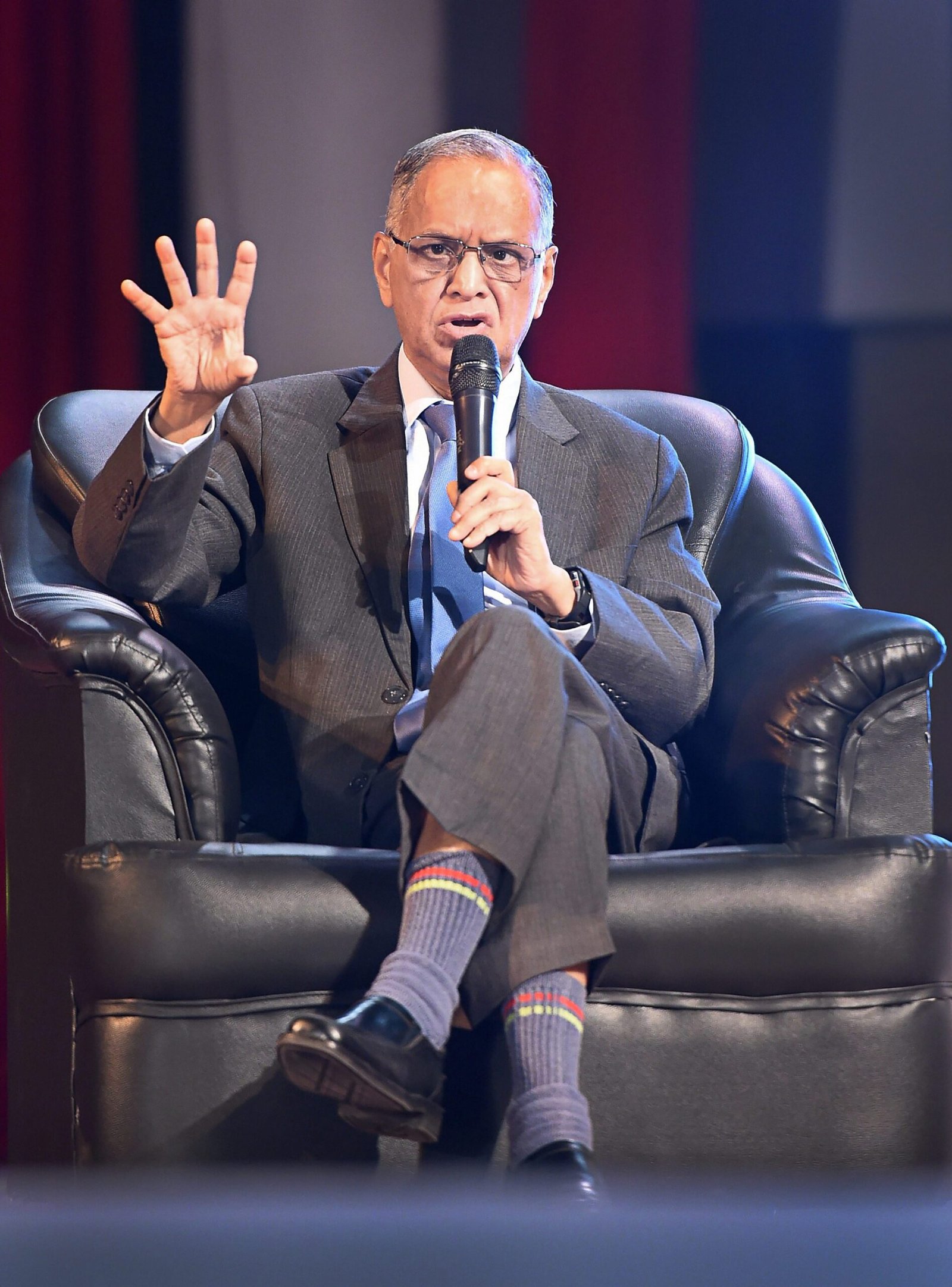
“No company can be run by committees. We learnt that a leader has to lead by example in values; must work the hardest; must make the biggest sacrifices must welcome ideas and opinions from competent and expert colleagues before taking any decision; must consider those ideas in his decision, and the buck must stop at his table for every major decision.”
-Narayana Murthy
…All that and the UK PM for a son-in-law! Married to the vibrant Sudha Murty in 1978, the two met through a mutual friend while Sudha was working in TELCO (now Tata Motors); incidentally, she was their first woman engineer. During their dating days, the shy, introverted Murthy was yet to find a steady job, and Sudha actually maintained a book of his debts to her. “He always owed me money,” she laughs, “we used to go for dinner and he would say, I don’t have money, you pay my share and I will return it to you later.” Eventually, three years later she tore up the book after they wed. The amount was a princely Rs 4,000 – and no, her husband hadn’t returned any of it! An educator, author, philanthropist, and chairperson of the Infosys Foundation, Sudha Murty was awarded the Padma Shri for her services to society.
The couple has two children – Akshata Murty and Rohan Murty. Rohan, a Harvard alumnus, is the founder of Sorocco and the mind behind the Murty Classical Library. He owns 1.45% of the tech company and had made headlines when he was brought in briefly to steer Infosys in 2013. Akshata, the older Murty sibling, has a stake of 0.93% in Infosys valued at about $721 million. A dual major in economics and French from Claremont McKenna College in California, she did a fashion designing diploma from the Fashion Institute of Design and Merchandising in Los Angeles, which followed a short work stint at Deloitte and Unilever. She went on to pursue her MBA at Stanford where she met Rishi Sunak. They married in 2009, and Sunak took over as the Prime Minister of England in October 2022. The couple, who reportedly owns a vast real estate portfolio, has two children, Krishna and Anoushka. Interestingly, Sunak revealed that it was his father-in-law who encouraged him to make a career in UK politics and aim for the top job of PM as he told him he could have a greater impact on the world through politics rather than business. Clearly, when Narayana Murthy gives advice, it’s best to heed it!

By 1999, Infosys had joined NASDAQ, becoming the first Indian company to be listed on an American stock exchange.
